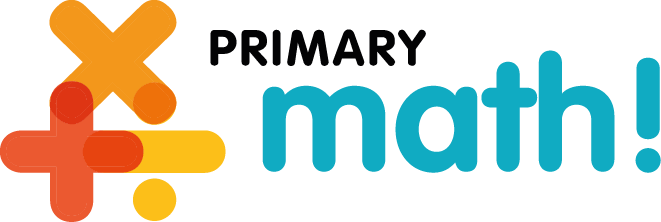Proven Approaches to Simplify Complex Math Topics for Better Understanding
Intricate math topics commonly existing considerable challenges for students. However, a number of proven techniques can facilitate comprehension. These techniques include the usage of visual help, damaging down issues, and attaching ideas to real-world scenarios. Each approach serves to boost understanding and retention. The effectiveness of these strategies raises crucial questions regarding their execution in educational settings and their effect on trainee involvement. What specific techniques could be most advantageous in method?
Recognize the Foundations
Recognizing the structures of mathematical principles is necessary for promoting much deeper understanding. A solid grasp of basic concepts allows learners to build on their knowledge, developing a much more coherent understanding of innovative topics. This foundational expertise consists of essential math procedures, number concept, and the residential or commercial properties of numerous mathematical features. By ensuring that pupils fit with these foundation, instructors aid to protect against confusion and aggravation as they encounter much more complicated ideas.
Moreover, a focus on foundational understanding urges essential reasoning and problem-solving skills. When students recognize the connections in between different ideas, they can approach tough troubles with self-confidence. This critical emphasis not just improves retention however also advertises a mindset tailored towards expedition and inquiry. Ultimately, focusing on fundamental expertise gears up students with the tools necessary to browse the intricacies of mathematics, paving the way for success in both real-world and scholastic applications.

Use Visual Aids and Diagrams
Visual aids and representations serve as powerful tools in simplifying intricate mathematical topics. They facilitate recognizing by giving graphes of abstract ideas, making them extra substantial. Charts can highlight features' actions, while geometric layouts can make clear spatial relationships in issues involving angles and forms.
In addition, flowcharts and idea maps can break down elaborate procedures, leading learners via multi-step services visually. This approach not only improves understanding however also involves different understanding styles, especially aesthetic learners that may deal with verbal descriptions alone.

Break Down Troubles Into Smaller Steps
Damaging down issues right into smaller sized, workable steps can considerably boost understanding in maths. This technique enables students to concentrate on one part of an issue at once, decreasing sensations of overwhelm and confusion. By isolating each step, trainees can develop a more clear understanding of the underlying methods and ideas called for to get to an option.
As an example, when fixing an algebraic formula, one can begin by simplifying each term before using procedures. This organized failure not just makes clear the process but likewise enables students to recognize blunders extra conveniently.
Additionally, this method urges vital reasoning, as learners are prompted to analyze each step's importance to the general trouble. Ultimately, damaging down problems promotes a more methodical approach to maths, promoting a much deeper understanding and retention of product. By understanding smaller sized actions, students build self-confidence and ability that add to their success in a lot more intricate mathematical obstacles.
Include Real-World Instances
Incorporating real-world examples into mathematics direction can significantly improve trainee engagement and understanding. When students attach mathematical principles to everyday life, they usually find the material a lot more relatable and easier to comprehend. For circumstances, making use of budgeting situations to teach enhancement and reduction aids students recognize the sensible applications of these operations. In a similar way, utilizing sporting activities statistics can successfully show concepts in likelihood and standards, making the finding out experience much more relevant and delightful.
Educators can additionally incorporate real-life information, such as populace development or ecological statistics, to illustrate functions and charts. This technique not only clears up abstract principles yet additionally cultivates critical thinking as students analyze and interpret real data (struggles in primary math). By linking the void in between concept and method, trainees are much more likely to appreciate the value of mathematics in their every day lives, resulting in improved retention and application of mathematical concepts
Urge Collaborative Learning
Joint learning serves as a powerful device in simplifying intricate mathematics principles. By involving in group problem solving, students can share diverse viewpoints and methods, enhancing their understanding. Furthermore, peer teaching strategies and interactive research study sessions foster a supportive setting, allowing learners to grasp tough product much more successfully.
Team Problem Solving
Team problem fixing promotes an environment where trainees can actively engage with intricate math ideas through synergy. By collaborating, students can share diverse viewpoints and methods, boosting their understanding of mathematical principles. Collaborative initiatives encourage discussion, permitting people to verbalize their thinking and clarify misconceptions. This look what i found communication advertises vital reasoning and deeper understanding of difficult topics. Furthermore, team problem fixing can reduce anxiousness connected with tough mathematics issues, as trainees support each other in getting rid of challenges. Educators can promote these sessions by assigning diverse roles within groups, making certain each pupil adds and discovers from the procedure. Inevitably, this collaborative approach not only enhances comprehension but likewise constructs essential interaction and teamwork abilities vital for future scholastic and professional undertakings.
Peer Mentor Techniques
Structure on the benefits of group problem addressing, peer training techniques arise as an effective technique to better improve collaborative understanding. These strategies entail trainees discussing ideas to one an additional, which reinforces their understanding and constructs self-confidence. When learners handle the function of teacher, they express their believed procedures and clarify their own mistaken beliefs. This mutual exchange fosters an encouraging setting where students really feel a lot more comfortable asking inquiries and looking for help. In addition, peer training urges interaction, as students often relate better to their peers than to standard direction. By integrating these techniques into the learning procedure, educators can create a dynamic class atmosphere that advertises deeper understanding and retention of complicated mathematical topics.
Interactive Study Sessions
Interactive research sessions can significantly boost the understanding experience by fostering an atmosphere where pupils actively engage with one another. These collective settings urge participants to share varied perspectives, thereby growing their understanding of intricate mathematics subjects. Students can break down elaborate ideas into manageable components, helping with clearer understanding. Through group discussions, trainees can clear up doubts and enhance their understanding by teaching peers, which strengthens their grasp of the material. Furthermore, interactive sessions promote motivation and accountability, as pupils feel more dedicated to their researches when working alongside others. Including tools such as joint platforms or analytic games can better improve these sessions, making finding out both delightful and effective. On the whole, interactive research study sessions serve as a powerful technique for boosting mathematical comprehension.
Make Use Of Modern Technology and Online Resources
As pupils browse through complicated mathematics topics, leveraging innovation continue reading this and on-line resources can considerably boost their understanding. Educational systems such as Khan Academy and Coursera use video tutorials that break down elaborate concepts right into digestible segments. These resources commonly integrate interactive elements, allowing students to practice issues in actual time, receive instant comments, and track their development.
In addition, math-specific applications like Photomath and Desmos Home Page offer devices to envision equations and charts, fostering a much deeper theoretical understanding. On-line online forums, such as Stack Exchange, allow pupils to involve and pose questions with a community of students and experts, better clearing up tough subjects.
Practice Regularly and Evaluation Regularly
Consistent method and regular evaluation are important for understanding complex math subjects. Engaging with mathematical ideas on a daily basis enhances understanding and aids to identify locations that require further attention. By fixing problems continuously, students can deepen their understanding of treatments and theses, making them force of habit with time.
Including a structured review timetable allows individuals to review previously discovered material, making certain retention and clarity - struggles in primary math. This method not only aids in memory loan consolidation however also highlights connections between various mathematical concepts, cultivating a more all natural understanding
Additionally, setting details objectives for both technique and evaluation can enhance emphasis and inspiration. Designating time each week for targeted analyses and exercises can produce considerable benefits. Eventually, normal practice and constant review form the foundation of effective maths education, furnishing students with the self-confidence and skills required to take on significantly complex subjects.
Frequently Asked Concerns
How Can I Stay Motivated While Discovering Complex Mathematics Topics?
Staying motivated while finding out complex mathematics subjects involves establishing attainable goals, celebrating tiny successes, looking for assistance from peers, using diverse resources, and keeping a positive frame of mind to welcome challenges as chances for development and understanding.
What Are Common Mistakes to Prevent in Mathematics Understanding?
Usual blunders in mathematics comprehension consist of ignoring foundational principles, hurrying with issues, stopping working to practice frequently, and misconception terms (struggles in primary math). Additionally, over-reliance on memorization rather of grasping underlying principles can prevent real understanding and application
Exactly how Do I Analyze My Comprehending of Mathematics Concepts?
To assess understanding of math principles, one must frequently practice problems, look for feedback, participate in conversations, and utilize self-quizzes. Mirroring on mistakes and training concepts to others can better boost understanding and retention of material.
What Should I Do if I Really Feel Overwhelmed by Mathematics?
When really feeling overwhelmed by math, one need to take breaks, method mindfulness, and break issues into smaller components. Looking for assistance from peers or instructors can likewise give clearness and decrease anxiety related to challenging principles.
How Can I Find a Math Tutor or Research Group?
To find a math tutor or study hall, one can look on the internet platforms, neighborhood area boards, or academic institutions. Networking with peers and looking for recommendations can likewise bring about efficient tutoring alternatives and research partnerships.
When students acknowledge the partnerships in between different ideas, they can come close to tough problems with confidence. Group trouble solving promotes a setting where pupils can actively involve with intricate mathematics principles with synergy. Additionally, group trouble fixing can reduce anxiety associated with difficult mathematics troubles, as pupils sustain each various other in conquering barriers. These methods include pupils explaining ideas to one another, which reinforces their understanding and builds confidence. Trainees can damage down elaborate ideas into manageable parts, facilitating more clear understanding.